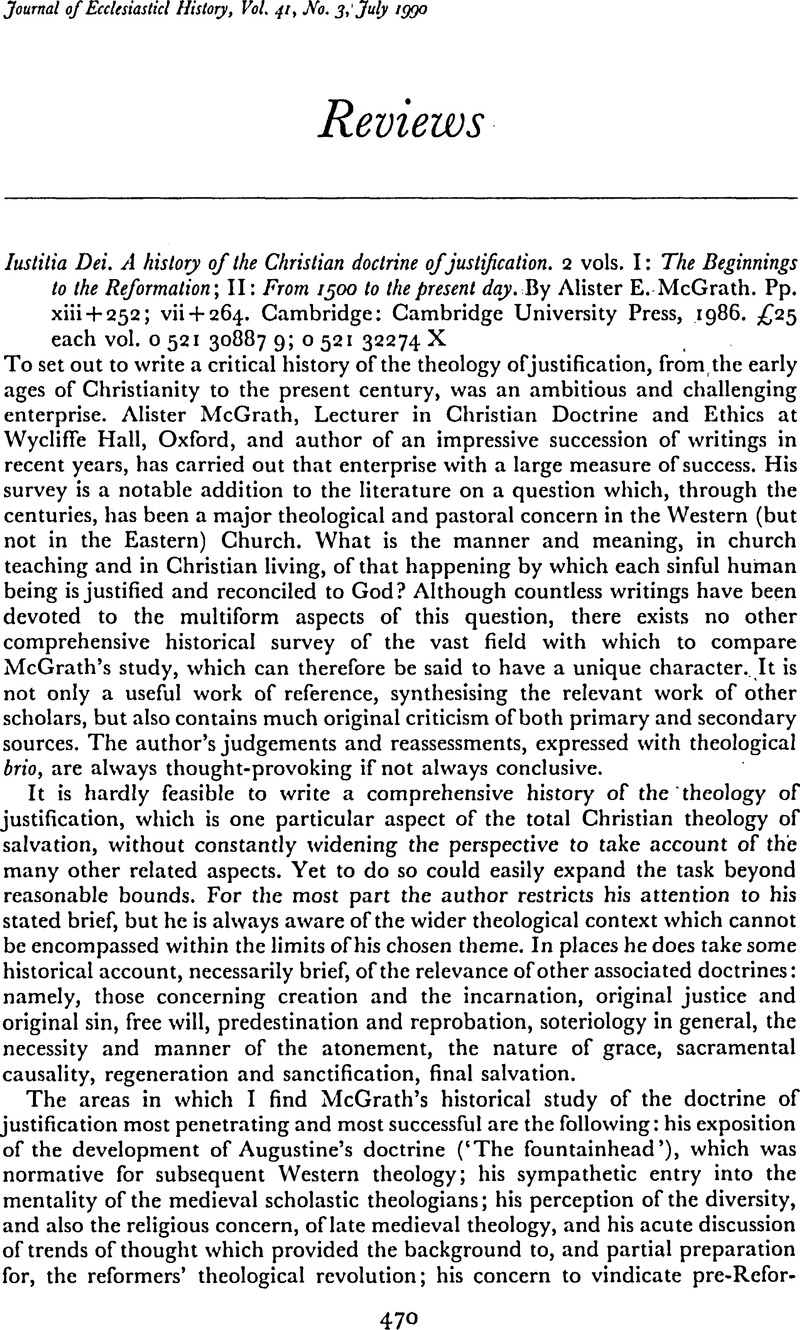No CrossRef data available.
Article contents
Iustitia Dei. A history of the Christian doctrine of justification. 2 vols. I : The Beginnings to the Reformation, II: From 1500 to the present day. By Alister E. McGrath. Pp. xiii + 252; vii + 264. Cambridge: Cambridge University Press, 1986. £25 each vol. 0 521 30887 9; 0 521 32274X.
Published online by Cambridge University Press: 07 April 2011
Abstract

- Type
- Reviews
- Information
- Copyright
- Copyright © Cambridge University Press 1990
References
1 His more thorough treatment of the alleged Pelagianism of the pre-Reformation theologians, and of Gabriel Biel in particular (i. 76–8), reinforces my own criticism of that allegation, in an article (to which he refers), ‘A new appraisal of late medieval theology’, Gregorianum xlvi (1965), 733–65.
2 McGrath shows his awareness of this in some passing reflections in i. 39–40.
3 Chs vii and xvi, and canon 11, Denzinger-Schonmetzer, 1529–30, 1547, 1561.
4 In an article, ‘Grace-experience in the Roman Catholic tradition’, JTS xxv (1974), 352–72, in which I discuss the Molinist synthesis more at length. Cf. also ‘New appraisal’, 754. Molina's theory of ab extrinseco grace-efficacy was opposed to the theory of praemotio physica defended by his Thomist opponents, which McGrath also mentions but does not clarify. According to their theory, the divine control of the order of salvation is achieved by the ab intrinseco efficacy of impulses of actual grace, understood to be transient supernatural influxes intromitted into the will, which, while not coercing its freedom, infallibly move the will to salutary choices.
5 The phrase is Gerhard Ebeling's, quoted by McGrath, ii. 187–8.




